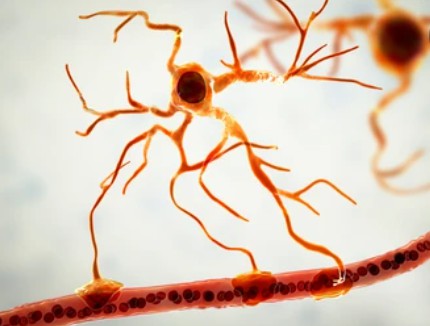-
- Development of Small Molecule Drug for Stroke
- Targeted Stroke Drug Development
- Stroke Drug Development Targeting Noncoding RNAs
- Stroke Drug Development Targeting PSD-95
- Stroke Drug Development Targeting Tau
- Stroke Drug Development Targeting Heat Shock Protein 70
- Stroke Drug Development Targeting Notch
- Stroke Drug Development Targeting Guanosine
- Stroke Drug Development Targeting Nogo-A
- Stroke Drug Development Targeting Nrf2
- Stroke Drug Development Targeting DAPK1
- Stroke Drug Development Targeting AMPK
- Stroke Drug Development Targeting Caveolin-1
Stroke Drug Development Targeting Cell Death- Stroke Drug Development Targeting Ferroptosis
- Stroke Drug Development Targeting Pyroptosis
- Stroke Drug Development Targeting Necroptosis
Stroke Drug Development Targeting Different Cell TypesStroke Drug Development Targeting Other Components- Stroke Drug Development Targeting Mitochondria
- Stroke Drug Development Targeting Autophagy
- Stroke Drug Development Targeting Epigenetic Mechanisms
- Stroke Drug Development Targeting Blood Brain Barrier
- Stroke Drug Development Targeting Excitotoxicity
- Stroke Drug Development Targeting NMDAR
- Stroke Drug Development Targeting The GluN2B Subunit of NMDAR
- Stroke Drug Development Targeting Glutamate
Stroke Drug Development Targeting Astrocytes
It has been established that astrocytes can modulate the pathological process of stroke through multiple pathways and that the same pathological phenomenon may have both beneficial and detrimental effects. For example, glial scarring impedes the spread of tissue damage to healthy tissue but also impedes neural repair function. Because of the complex role of astrocytes in stroke pathology, the development of stroke drugs targeting astrocytes has become more specific and more challenging. Therefore, Ace Neuroscience offers a comprehensive service ranging from identification and validation of astrocyte targets to pharmacological evaluation of astrocyte modulators in stroke to facilitate the study of stroke drugs targeting astrocytes.

Target Identification & Validation
Studies have shown that astrocytes can modulate excitotoxicity, oxidative stress, mitochondrial function, and other pathways during the stroke. Because of the complex functions of astrocytes, modulation of astrocytes and thus stroke treatment requires more specificity and targeting of modulators. Therefore, Ace Neuroscience offers a comprehensive service with the aim of finding specific targets.
- We have established various stroke astrocyte models to screen and validate candidate targets.
- We provide gene ontology enrichment analysis and KEGG enrichment analysis to screen candidate targets.
- We establish in vitro and in vivo stroke models by drug administration and genetic manipulation to explore the effect of candidate targets on stroke.
- We determine the activity and mechanism of action of candidate targets by western blotting, ELISA, luciferin reporter system, RNA pull-down, RIP-PCR, gel migration, and electrophoretic mobility shift assays.
High Throughput Screening of Astrocytes Modulators
After screening astrocytes for specific targets in stroke pathology, we provide high-throughput screening platforms to perform high-throughput screening of modulators based on the characteristics of the targets. In parallel, we provide comprehensive services to explore the effects of candidate modulators on astrocytes.
- Based on our small molecule library, including ultra-large compound library, natural product library, and fragment library, we have established different high throughput screening platforms to find astrocyte modulators against targets.
- We chemically modify potential astrocytic modulators to make them more specific while enriching the number of modulators.
- We provide relevant models of astrocytes to validate the different effects and mechanisms of modulators.
Preclinical Evaluation of Drug Candidates for the Treatment of Stroke
We have validated the effect of modulators on astrocytes. Immediately afterward, we offer a variety of pharmacological activity assessment services to investigate the therapeutic effects of astrocyte modulators on stroke while exploring their specific mechanisms of action and drug metabolism.
- We provide different in vitro and in vivo stroke models to validate the therapeutic effect of astrocyte modulators on stroke and to further explore the mechanism of action of astrocytes.
- We investigate the effects of astrocyte modulators on astrocyte-related signaling pathways through molecular co-expression correlation, molecular interaction, molecular localization, activity, and conformation assays.
If you would like to learn more about our services, please feel free to contact us.
Reference- Liu, Z., et al. Astrocytes, therapeutic targets for neuroprotection and neurorestoration in ischemic stroke. Prog Neurobiol. 2016, 144(p.103-20.
All of our services are intended for preclinical research use only and cannot be used to diagnose, treat or manage patients.Related ServicesAce NeuroscienceWe are committed to accelerating progress in stroke research and drug development.
Connect with usCopyright © Ace Neuroscience. All rights reserved.0Inquiry Basket